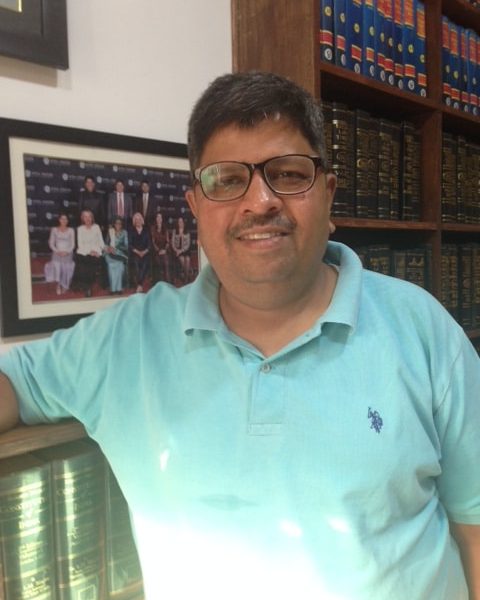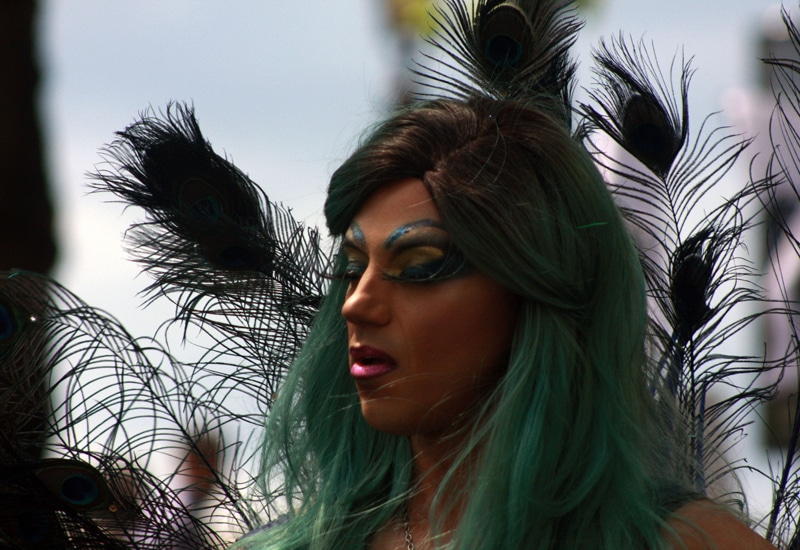
ZAGREB, Croatia (WOMENSENEWS)-Riot police and barricades blocked all roads leading to Croatia‘s parliament building on a day when lawmakers were set to pass a law to recognize and compensate survivors of wartime sexualized violence.
Debate over the legislation had been contentious. But the disturbance had nothing to do with rape, war and sexual violence. It concerned a group of about 40 veterans wearing jeans and fatigues who occupied the church in front of parliament calling for the resignation of top officials at the Ministry of Veteran Affairs due to comments they perceived as insulting.
For the group of about 15 civilians who had gone together to parliament to witness the historic vote on rape reparations-most of them women-the veteran's demonstration meant they had to negotiate entry with the police for over an hour before going through a routine airport-style security check.
Once inside parliament they were just in time to witness a walkout by half of the lawmakers-all members of the rightwing HDZ (Croatian Democratic Union) party. The next day was Parliament Day and the lawmakers did not want to join any celebration while the veterans were outside protesting.
The veterans-who wield huge political influence here, and receive hefty compensations since the end of the war in 1995-upstaged the group of wartime rape survivors who until now were relatively disregarded.
After the walkout, however, enough lawmakers were left to vote and pass the rape reparation law that not only provides survivors with financial compensation but also carries a notable degree of political distinction.
In contrast to Bosnia and Kosovo that packaged wartime rape compensation as part of other laws, the Law on Rights of Victims of Sexual Violence During the Armed Aggression on the Republic of Croatia During the Homeland War stands on its own and sets up compensation for survivors as part of the national budget.
The new law in Croatia carries more political weight than other laws in the region and magnifies the recognition of survivors. But that doesn't mean the effort to recognize and compensate survivors of wartime sexualized violence is by any means complete.
Symbolically Potent Interference
The interference caused by the veterans, which nearly stopped the survivors from entering parliament and then injected uncertainty into the vote itself, is symbolically potent.
The whole affair with the veterans-especially in relation to the survivors-and the long and difficult process of approving the rape-survivor law says much about the country's patriarchal attitudes and national enmities left over from the war.
Both delayed and then threatened the crafting of the law. Nationalism, meanwhile, limited one of its key provisions: the definition of who in Croatia will officially be considered a victim of wartime rape.
Croatian veterans-all 500,000 of them, a number widely believed to be overinflated-were given lifetime pensions and several other benefits since the end of the war. Those compensations alone represent 1.8 percent of country's GDP, according to United Nations Development Programme documents.
“When you look at the position of power and position of men in war, they carry arms and they kill people . . . and they usually get rewarded for that,” said Jasmina Papa, a UNDP program officer, in a recent interview in Zagreb. “It's hard to compare and make a hierarchy between a lost leg and rape, or between a bullet in your body and rape, and what are the psychological consequences. But this (law) is somehow trying to acknowledge this kind of suffering and that women were usually casual victims of war.”
In the fall, the government will form a committee to review cases and begin an outreach campaign to survivors to spread awareness of the provisions.
But the extent to which survivors will actually apply for this special status could be highly limited, according to UNDP-funded research published in December 2013. Authors estimated that of the 2,200 survivors who would be eligible for compensation, fewer than 200 would come forward since many would be deterred by stigma and fear.
Even in times of peace, sexualized violence is a sensitive subject where survivors often feel a sense of shame and even guilt.
Those who wish to avoid unwanted attention in their communities may have difficulty arranging the resources and logistics to meet with the committee. Fear of further trauma, stigmatization and ostracism is a strong motivating factor to stay silent. Many observers here said most survivors, having been mostly ignored for over two decades-especially in comparison to veterans-are unlikely to come forward.
Problem Obscured
For war-afflicted societies to move through the process of acknowledging and compensating war victims, the UNDP's Papa said reparation for sexualized violence is crucial. The law, she added, also helps address some of the “patriarchal relationships of power” that still guide political decisions that have largely ignored women and victims of sexualized violence in war.
In Croatia, the problem of wartime sexualized violence has been obscured in comparison to other places.
The horror stories in neighboring Bosnia-that involved as many as 50,000 women-famously swayed the U.N. Security Council to a first-time condemnation of rape during wartime in 1992.
A year later, the International Criminal Tribunal for the former Yugoslavia made legal history by recognizing rape as a crime against humanity punishable under international law, and the court in Rwanda did the same in 1994.
In Croatia, however, the problem remained largely overlooked until recently when Marija Sliškovi?, head of the Women in the Homeland War Association, was researching a book on the positive contributions that women made during the war. She found plenty of evidence that rape had been applied as a wartime strategy, subjecting survivors to a lifetime of trauma that spreads through the family and community.
“This war strategy is better than a bullet,” said Sliškovi? in an interview in her office in Zagreb. “A bullet sorts out everything in a minute. This way you create a sick group.”
Seeking to break the silence that surrounded rape survivors and give them a voice, Sliškovi? launched a public campaign that attracted the attention of the UNDP. Together they first set up a project to provide therapy called “I am much more than my trauma” that included group conversation, individual sessions and skills development. Then, along with other activists, nongovernmental rights groups, lawyers and people within the Ministry of Veteran Affairs, they started drafting the law.
Getting agreement on the components of the law was difficult and the process took about four years.
Almost each aspect of the law was opposed by politicians, mostly men, who feared large numbers, shrinking government coffers and lies about wartime rape. (But the UNDP-funded research served as proof that their numerical fears were unfounded.) Many also feared uncomfortable stories would come out about perpetrators on all sides of the war.
Jelena Hermann, an activist in the Centre for Women War Victims, witnessed the parliamentary debates two weeks before the vote. Instead of talking about the survivors and their needs, Hermann said in a recent interview, the conversation tended to hold them up as a symbol of Croatia, the victim, at the hands of Serbia, the enemy. Some politicians wanted to avoid paying survivors out of the country's own budget and called for reparations to come from Serbia. Others called for a reinstatement of capital punishment for the perpetrators.
The nationalistic political maneuverings and theatrical parliamentary sessions are also reflected in the details of the law.
Defining a Victim
The effort to define a victim-or who would be considered eligible as a survivor of wartime sexualized violence-was a particularly sensitive issue and wound up reflecting and reinforcing nationalistic enmities.
Some tried to make the definition broad enough for every survivor, including Serbs who were sexually assaulted by Croatian forces for being suspected of collaboration, but they were overwhelmed by a majority.
One wartime rape survivor, who prefers not to be named, suspects many survivors are torn between recognizing the universality of the atrocious crime and aligning themselves with Croatia against Serbia. “I cannot boast about my nationalism if I admit that all the victims are the same. I would be contradicting myself,” she said.
“This society is still not ready, strong enough, to accept the idea that even the enemy in war was sexually abused and should be recognized as such,” said Vesna Na?, deputy minister in the Ministry of Veteran Affairs, in an interview at the ministry. Na? was part of the team that drafted and pushed the law forward within her ministry.
Being enshrined in law is a significant step, but for many women's rights activists here, the focus is now on implementation to determine whether or not Croatia can fully embrace human rights, work toward peace and reconciliation and prove that it stands behind the oft-heard phrase of “a victim is a victim, regardless of nationality.”
Several of the survivors who filed out of parliament after the vote said the law was welcome but that the therapy co-organized by the UNDP was personally more life changing.
Nenad Jegrišnik, who went through the therapy, is a veteran and rape survivor; one of the rare men to go public with his past. As he left parliament on voting day, he stood across the street from the church occupied by some of his colleagues and described the law as “a small drop in the sea that should have happened a long time ago.”
Would you like to Send Along a Link of This Story? https://ihtbd.com/2015/07/croatias-wartime-rape-law-raises-hope-and-doubt/


